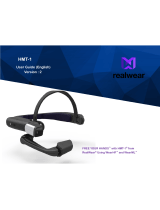
R
ead this Manual Before Installing
This manual provides information on the Model B40
Sealed External Cage Liquid Level Switch. It is important
that all instructions are read carefully and followed in
sequence. Detailed instructions are included in the
Installation section of this manual.
Conventions Used in this Manual
Certain conventions are used in this manual to convey
specific types of information. General technical material,
support data, and safety information are presented in
narrative form. The following styles are used for notes,
cautions, and warnings.
Notes
Notes contain information that augments or clarifies
an operating step. Notes do not normally contain
actions. They follow the procedural steps to which
they refer.
Cautions
Cautions alert the technician to special conditions that
could injure personnel, damage equipment, or reduce
a component’s mechanical integrity. Cautions are also
used to alert the technician to unsafe practices or the
need for special protective equipment or specific
materials. In this manual, a caution box indicates a
potentially hazardous situation which, if not avoided,
may result in minor or moderate injury.
Warnings
Warnings identify potentially dangerous situations or
serious hazards. In this manual, a warning indicates an
imminently hazardous situation which, if not avoided,
could result in serious injury or death.
WARNING! Explosion hazard. Do not connect or
disconnect equipment unless power has been switched off
or the area is known to be non-hazardous.
Low Voltage Directive
For use in Category II installations. If equipment is used
in a manner not specified by manufacturer, protection
provided by equipment may be impaired.
N
otice of Copyright and Limitations
Copyright © 2017 Magnetrol
®
International, Incorporated.
All rights reserved.
Magnetrol
®
reserves the right to make changes to the
product described in this manual at any time without
notice. MAGNETROL makes no warranty with respect
to the accuracy of the information in this manual.
Warranty
All MAGNETROL mechanical level and flow controls
are warranted free of defects in materials or workmanship
for five full years from the date of original factory ship-
ment.
If returned within the warranty period; and, upon factory
inspection of the control, the cause of the claim is
determined to be covered under the warranty; then,
MAGNETROL will repair or replace the control at no
cost to the purchaser (or owner) other than transporta-
tion.
MAGNETROL shall not be liable for misapplication,
labor claims, direct or consequential damage or expense
arising from the installation or use of equipment. There
are no other warranties expressed or implied, except
special written warranties covering some MAGNETROL
products.
Quality Assurance
The quality assurance system in place at MAGNETROL
guarantees the highest level of quality throughout the
company. MAGNETROL is committed to providing
full customer satisfaction both in quality products and
quality service.
The MAGNETROL quality assurance
system is registered to ISO 9001 affirming
its commitment to known international
quality standards providing the strongest
assurance of product/service quality
available.




















